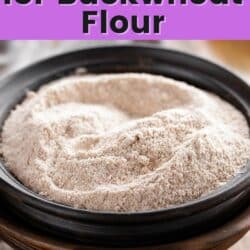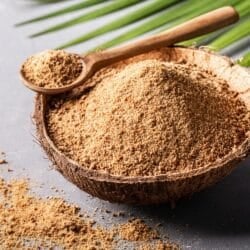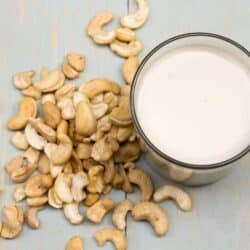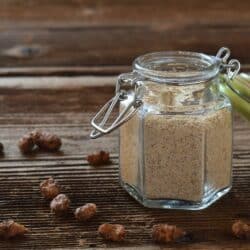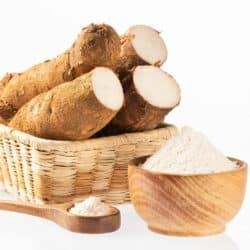9+ Substitutes for Buckwheat Flour
If you need buckwheat flour for a recipe, but don’t have any on hand, you’re in luck! There are many great options that can offer the same properties. Here are some of the best substitutes for buckwheat flour.
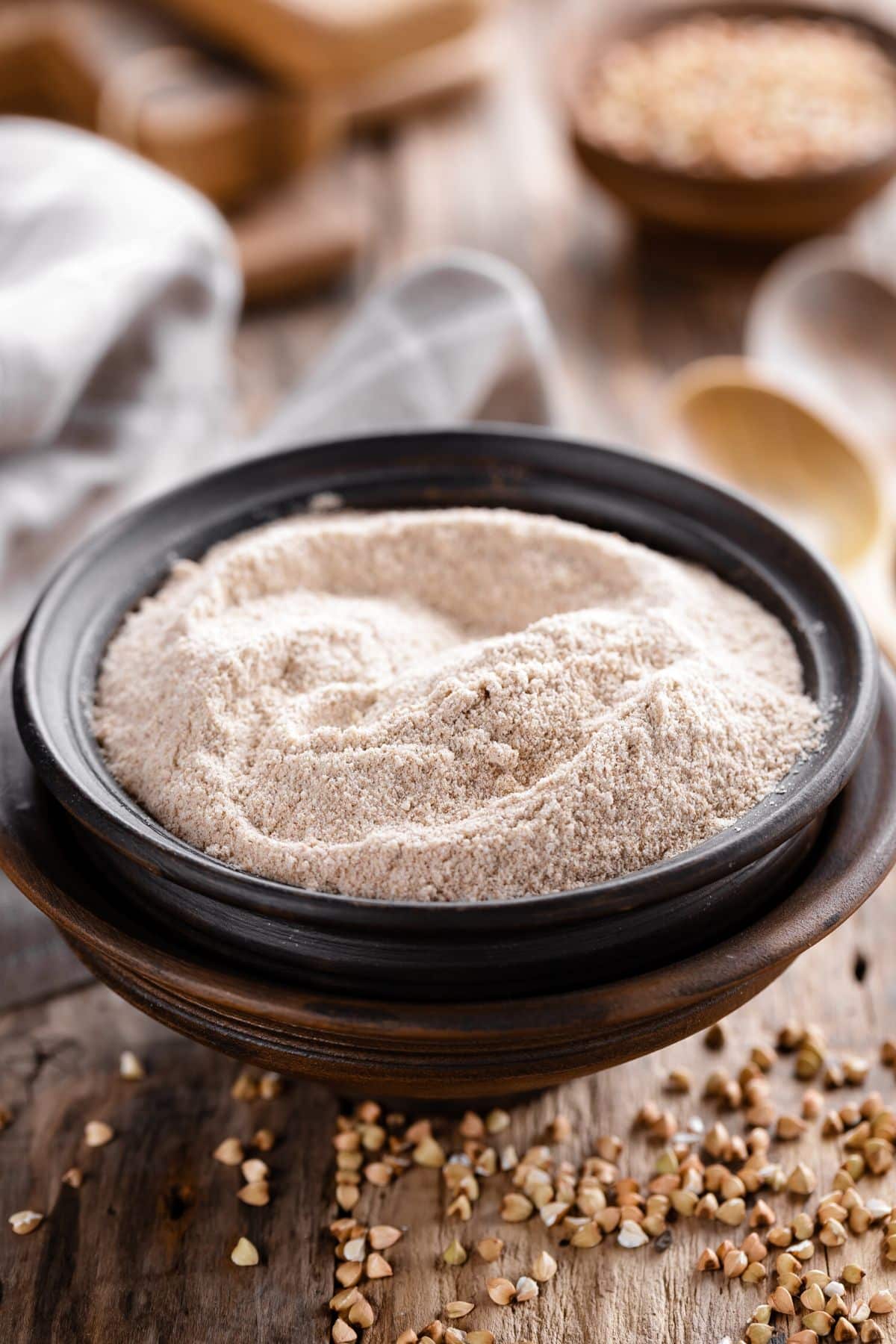
Buckwheat flour is a type of flour made from the seeds of the buckwheat plant. These seeds are ground into a fine powder, which can then be used to make breads, pancakes, and other baked goods.
It has a nutty, earthy flavor and is high in protein and fiber and is a good source of iron and magnesium. It is also gluten-free (despite its name which sounds like it is a type of wheat), making it a good choice for people with celiac disease or gluten intolerance.
Buckwheat flour can be found in most grocery stores, usually near the other flours or in the health food section.
Substitutes for Buckwheat Flour
If you have a recipe using buckwheat flour but you don’t have it on hand, here are some alternatives you can use instead of buckwheat flour.
I have tried several of these options when baking my yummy Buckwheat Bread recipe! Most of these are a great gluten-free substitute for buckwheat in your gluten-free recipes.
1. Gluten-free baking flour
Gluten-free baking flour is a type of flour that does not contain gluten.
It can be used as a substitute for buckwheat flour in recipes that require it and offers similar properties to regular wheat flour though it does not have the same flavor or texture as regular flour.
I regularly use and recommend Bob’s Red Milll Gluten-Free Baking Flour. It offers the most consistent results of all the gluten-free flours I have tried.
To substitute one cup of buckwheat flour, use one cup of gluten-free baking flour.
2. Teff flour
Teff flour is a type of flour made from ground teff grains. Teff is an ancient grain native to Ethiopia, and it has been used for centuries as a staple food. It is high in protein, fiber, and minerals such as iron, magnesium, and zinc.
Teff flour has a nutty flavor and a slightly sweet taste, making it a good choice for baking. The texture will be different from buckwheat flour, but the flavor will still be similar.
To substitute one cup of buckwheat flour, use one cup of teff flour.
3. Sorghum flour
Sorghum flour is a type of whole-grain flour made from sorghum, a cereal grain that is also known as milo. It has a nutty flavor and a slightly sweet taste.
Sorghum flour can be used in many recipes to make cakes, muffins, pancakes, quick breads and cookies.
In comparison to buckwheat flour, sorghum flour has a slightly more neutral taste but may not provide the same structure as buckwheat flour in recipes.
To substitute one cup of buckwheat flour, use one cup of sorghum flour.
4. Spelt flour
Spelt flour is a type of ancient grain flour made from spelt, a variety of wheat that is believed to be one of the oldest cultivated grains.
It has a nutty flavor and slightly sweet taste and can be used in place of regular wheat flour as either an all-purpose or whole wheat flour. Spelt flour is also high in protein and fiber.
When compared to buckwheat flour, spelt flour is higher in calories and contains more complex carbohydrates. It also has a slightly sweeter taste and texture than buckwheat flour, but the two can be used interchangeably for baking purposes.
To substitute one cup of buckwheat flour, use one cup of spelt flour.
5. Brown rice flour
Brown rice flour is a whole-grain, gluten-free flour made from finely ground brown rice.
It can be used to make baked goods such as flatbreads, pancakes, muffins and other desserts. Brown rice flour has a nutty flavor and is high in fiber.
Brown rice flour is an excellent alternative to buckwheat flour as it has a milder flavor and lighter texture.
To substitute one cup of buckwheat flour, use one cup of brown rice flour.
6. Oat flour
Oat flour is whole-grain flour made from oats that have been finely ground into a powder. It can be used to replace regular wheat flour in many baking recipes.
Oat flour is higher in fiber and protein than buckwheat flour and has a nutty, sweet flavor. Certified gluten-free oat flour made from certified gluten-free oats does not contain gluten and can be used as an alternative to wheat flour for people with celiac disease or other gluten sensitivities.
Oat flour has a slightly less dense texture than buckwheat flour, but it can be used interchangeably with buckwheat flour in many baking recipes.
To substitute one cup of buckwheat flour, use one cup of oat flour.
7. Cassava flour
Cassava flour is a gluten-free flour made from the cassava root. It has a slightly sweet and nutty flavor, and is high in resistant starch.
Cassava flour provides a light texture and crumbly consistency when combined with other gluten-free ingredients and it can also be used to make dense and chewy baked goods like cookies, muffins, and bread.
Unlike buckwheat flour, cassava flour does not have a strong flavor. The texture of cassava flour is slightly grainy and it absorbs more liquid than other flours.
To substitute one cup of buckwheat flour, use one cup of cassava flour.
8. All-purpose flour (not gluten-free)
All-purpose flour is a type of wheat flour made from different wheat varieties. It is milled to remove bran and germ, which gives it a finer texture and lighter color than whole-wheat flour. It’s often referred to as regular flour or white flour.
All-purpose flour is the most commonly used type of wheat flour for baking, as it can be used interchangeably with other flour.
All-purpose flour is not gluten-free like buckwheat flour. It has a lower protein content than buckwheat flour and produces lighter, less dense baked goods. The flavor of all-purpose flour is milder compared to the earthy, nutty taste of buckwheat flour.
Do not use all-purpose flour in place of buckwheat flour if you need to make a gluten-free product.
To substitute one cup of buckwheat flour, use one cup of all-purpose flour.
9. Whole wheat flour (not gluten-free)
Whole wheat flour is a type of wheat flour made from the entire wheat grain. It contains all three parts of the wheat berry, including the bran, endosperm and germ, so it has more fiber and nutrients than white or all-purpose flour.
Whole wheat flour has a slightly nutty flavor and hearty texture and is best for hearty breads, pancakes and muffins.
Whole wheat flour is denser and has a higher protein content than buckwheat flour, and also has a slightly different flavor profile than buckwheat flour. Wheat flour is not gluten-free like buckwheat flour.
Do not use all-purpose flour in place of buckwheat flour if you need to make a gluten-free product.
To substitute one cup of buckwheat flour, use one cup of whole wheat flour.
Bonus Alternatives
If you don’t have any of the above best buckwheat flour substitutes, you can also try chickpea flour, almond flour, or quinoa flour in a one-to-one ratio to buckwheat flour.
I would not use coconut flour, though, as it is not a great alternative. I would also avoid xanthan gum and potato starch as they are types of flour that aren’t a great gluten-free substitute for buckwheat flour.
Pros and Cons
Here’s a chart summarizing various substitutes for buckwheat flour, including the pros and cons:
| Substitute | Pros | Cons |
|---|---|---|
| Gluten-free Baking Flour | Mimics wheat flour properties, gluten-free. | Flavor and texture differ from buckwheat flour. |
| Teff Flour | Nutty, slightly sweet flavor, rich in nutrients. | Texture different from buckwheat, may require recipe adjustments. |
| Sorghum Flour | Nutty, slightly sweet, neutral taste, good for digestion. | May not provide the same structure as buckwheat in recipes. |
| Spelt Flour | Nutty, slightly sweet, high in protein and fiber. | Higher in calories and carbs, contains gluten. |
| Brown Rice Flour | Mild flavor, lighter texture, gluten-free. | Milder flavor might not be preferred in all recipes. |
| Oat Flour | High in fiber and protein, nutty, sweet flavor, gluten-free. | Less dense texture than buckwheat, might alter recipe textures. |
| Cassava Flour | Light texture, mild flavor, gluten-free. | Grainy texture, absorbs more liquid. |
| All-purpose Flour | Versatile, commonly used for baking. | Contains gluten, milder flavor, less dense. |
| Whole Wheat Flour | Nutty flavor, hearty texture, rich in nutrients. | Denser, contains gluten, different flavor profile. |
More Articles on Substituting Ingredients
Conclusions
Each of these alternatives to buckwheat flour offers its own unique flavor and texture. By understanding the characteristics of each flour and being aware of their individual differences you’ll be able to find the perfect buckwheat flour substitute for any recipe.
Don’t forget to join my newsletter list to get exclusive clean eating recipes and tips. The newsletter is 100% free with no spam; unsubscribe anytime.
About the Author: Carrie Forrest has a master’s degree in public health with a specialty in nutrition and is a certified holistic nutritionist. She is a top wellness and food blogger with over 5 million annual visitors to her site. Carrie has an incredible story of recovery from chronic illness and is passionate about helping other women transform their health. Send her a message through her contact form.


